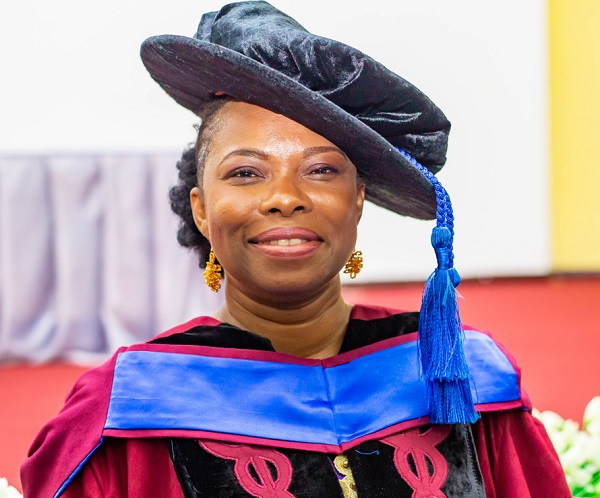
First Ghana trained Geriatrician demands better care for the elderly
Dr. Lenusia Ahlijah, the first Geriatrician (those that care for the elderly) trained in Ghana, has called for more investment and support services for the care of the elderly persons in the country.
She expressed the concern that on many occasions, the older people are not really thought of when it comes to planning for development as well as when it comes to providing resources for their health care.
Advertisement
She said even when it comes to the national health insurance, not much has been done for the elderly people, and that many elderly people, those above 60 years of age, “are still paying out of pocket for their health care.”
“It looks like we are more skewed towards the younger population rather than the older persons who are still very active and are very useful in society,” she noted.
For her, “Health insurance does not cover such people and you will realise that those individuals who are above 70 who even have to be beneficiaries of the NHIS still have to pay for some of their medications out of pocket, even some of their investigations are not reimbursed by national insurance so they have to depend on their own resources.”
Dr Ahlijah in an interview with Graphic Online during her graduation at the Ghana College of Physicians and Surgeons in Accra on Wednesday, December 7, 2022, said many elderly people in the country depended on their families to be able to pay for their care, hence those without support from their families are unable to access healthcare, thus compounding their health needs.
“The plight of our older adult population, so far as their healthcare is concerned, is compounded by the fact that majority of them have to pay for their healthcare,” she observed, adding “older persons aged between 60 and 69 are not covered by the National Health Insurance (NHIS), and even those above 70 years, who are supposed to be beneficiaries, end up paying for most of their investigations and medications because hospitals do not get reimbursed for them.”
Background
Globally, the population of those aged 60 years and above is growing at the rate of 3.2 per cent annually.
It has been projected by the World Health Organisation that there will be 2 billion older adult population in 2050.
Ghana is known to have one of the highest proportion of the older adult population in sub-Saharan Africa, with an average life expectancy of 66.3 years as of 2020.
However, investments in healthcare and support services seem to favour the younger population to the detriment of the older persons, who also continue to contribute to their families, communities and the nation as a whole.
“Aging comes along with some level of tilt. You will realize that a lot of the older people have had to deal with chronic diseases like hypertension, diabetes…. a lot of them have to deal with mental health issues,” Dr Ahlijah, who is also specialist family physician and the Medical Superintendent of Tema Polyclinic, noted.
She also expressed the concern that many elderly people in society are not properly taken care of by their families, hence worsening their plight.
“…because of the current social situation where we have adult-children going out to work, a lot of the older persons are left on their own and many of them have gone through loneliness and some of them have even become depressed because of that,” she explained.
Challenges of elderly
She said many elderly people are prune to accidents, particularly from falling.
Dr Ahlijah said many homes are not constructed with the elderly in mind, explaining that elderly people are more likely to fall on tiles which could lead to many other complications.
“We live in communities where not much goes into the thinking when it comes to building. They don’t make them elderly friendly so a lot of them (elderly people) tend to fall even in their own homes,” she said, adding “people don’t use the right quality of tiles so then, they easily trip and fall and they are exposed to all kinds of injuries; so these are some of the common problems our older persons face.”
She said that although some steps have been taken by the Ghana Health service to improve the care for the elderly in Ghana, more needed to be done.
Dr Ahlijah commended the Ghana College of Physicians and Surgeons for their move to train more geriatricians in Ghana, expressing the hope that it will enable many doctors and other healthcare professionals to speciliase in such fields.
Additionally, the Ghanaian trained geriatrician, said there was the need to increase the knowledge of all healthcare professionals about the needs of the older persons in order to improve the care for the elderly.
Rewarding
She has, therefore, encouraged practicing and prospective medical doctors and other health professionals to specilaise in the care for the elderly.
“I have come to realise that health care to the elderly is very rewarding,” she noted, calling on health training institutions to inculcate the care for the elderly in their curriculum.
“We need to make care of the elderly some basic knowledge part of the curriculum so that health care professionals come out of their institution equipped to provide some basic care and to improve on the specialist care job,” Dr Ahlijah suggested.
For her, there is also the need for political will in order to improve the care for the elderly, pointing out that “we will all grow old one day.”
“We are all growing so when you are able to establish a society that cares for the older persons, we all tend to benefit so we can enjoy our lives even to the day that God calls us,” she noted.




